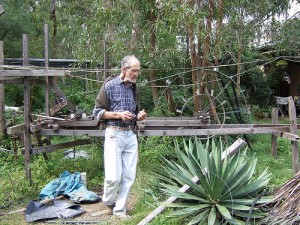SUMMARY
1. THE GLOBAL SITUATION
Global problems cannot be solved without huge and fundamental change, because they are directly caused by our present socio-economic system.
The basic cause of the problems is over-consumption -- the grossly unsustainable demand for high material "living standards" in a world of limited resources. We cannot keep up the present levels of production and consumption and resource use for long, and there is no possibility of all the world's people ever rising to these levels. People in rich countries have these high "living standards" only because we are taking much more than our fair share of the available resources and depriving the majority.
Even though present levels of production and consumption are unsustainable this economic system must have constant and endless increase in output, i.e., economic growth. A sustainable world order is not possible unless we move to much less production and consumption, and much less affluent lifestyles within a steady-state economic system.
Our second major mistake is allowing the market to determine our fate. An economy which relies heavily on free market forces will inevitably allocate most of the world's wealth to the few, produce inappropriate development, destroy the environment, and ignore the needs of the majority. What is done must be determined by what humans and ecosystems need, not by what is most profitable in a market.
Underlying these faults is a culture based on competition, individualism, acquisitiveness, wealth and luxury. There must be a value change to much more concern with cooperation, sharing, helping, caring, collective welfare and living more simply.
Technical advance cannot solve these problems. It cannot make a big enough difference to levels of resource use and ecological impact. It cannot eliminate the need for radical change in our "living standards", values and economy.
Consumer-capitalist society cannot be fixed -- reforms to it will not solve the problems. Its basic structures and systems must be replaced.
2. THE SOLUTION.
We cannot achieve a sustainable and just world order unless we change to,
- Simpler lifestyles, much less production and consumption, much less concern with luxury, affluence, possessions and wealth.
- Small, highly self-sufficient local economies, largely independent of the global economy.
- More cooperative and participatory ways, enabling people in small communities to take control of their own development.
- A new economy, one not driven by profit or market forces, and a zero-growth or steady-state overall economy, which produces much less than the present economy.
- Some very different values, especially cooperation not competition, and frugality and self-sufficiency not acquisitiveness and consuming.
The Simpler Way is about ensuring a very high quality of life for all without anywhere near as much production, consumption, exporting, investment, resource use, environmental damage, work etc. as ther e is now. There are many rich alternative sources of satisfaction other than material acquisition and consuming. Consider having much time for arts and crafts and personal growth, living in a rich and supportive community, having to go to work for money only two days a week, living in a diverse and productive leisure-rich landscape, having socially worthwhile and enjoyable work with no fear of unemployment...and knowing you are not contributing to global problems. There is no need to sacrifice modern technology to achieve these benefits.
The fate of the planet depends on whether initiatives such as the Transition Towns movement can provide many impressive examples of sustainable, just and pleasant ways showing people in consumer society that there is a better way.
The main purpose of this website is to provide information which will help people in their efforts to educate about the need for change to The Simpler Way.
The main purpose of this website is to provide information which will help people in their efforts to educate about the need for change to The Simpler Way.

No comments:
Post a Comment